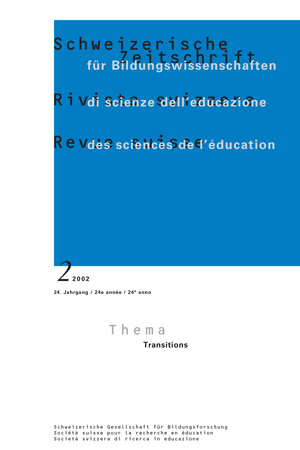Adult education in Switzerland and in other OECD countries- A comparative perspective
DOI:
https://doi.org/10.24452/sjer.24.2.4631Abstract
Adult education is a very contemporary topic. It is not only part of the discussion on lifelong learning, but also includes a number of issues that range from mastering basic reading and writing skills to vocational training for new technologies, from economic growth to the notion of citizenship. In Switzerland, adult education has a strong professional focus. Proof of this is the current legislative initiative under debate, which concerns, at least at present, only continuous vocational training. Adult participation in learning activities reaches considerable quotas compared to other OECD countries. There are however, numerous participation gaps in terms of educational attainment, gender, geographic location, occupational categories, age, etc. Switzerland is torn between two paths. On one hand, there is an apparent desire for public intervention to homogenise supply, provide financing and assure some degree of equality. On the other hand, it leaves the private market and training centers to cover this ground. At the same time, the Swiss system is fragmented because of its political structure: a federal system, which disperses different responsibilities over different levels. Being that some departments are subsidiary to others and the multiplicity of actors and associations involved sometimes adds to this complexity. This results in an absence of transparency and a lack of co-ordination, which can constitute barriers to the development of adult education. A number of measures that have been taken, more or less recently, can contribute to improve the situation. The more visible ones are the creation of forums for discussion and co-ordination – Swiss Conference of Cantonal Directors of Public Education (CDIP), the Swiss Federation of Adult Education (FSEA), the Forum… – and the setting into motion of initiatives to improve the transparency of the system (eduQua, modularisation…). Meanwhile, a society wide debate is taking place (at university, through the OECD Thematic Review on Adult Learning,…).
Downloads
Downloads
Published
Issue
Section
License
Copyright (c) 2002 Beatriz Pont, Patrick Werquin

This work is licensed under a Creative Commons Attribution 4.0 International License.



